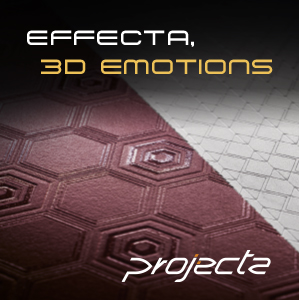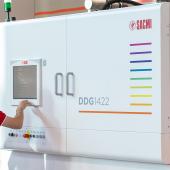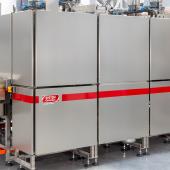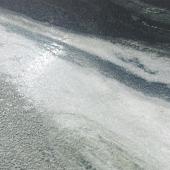
The most compact and versatile machine in its category, the Continua+ 2120 completes SACMI’s family of continuous pressing solutions. Pederzini (SACMI): “With this machine, SACMI breaks down the last barrier separating slabs and standard sizes”
The 60x60 cm size is currently the world’s most popular ceramic tile. It’s a large tile but not quite a slab, a term that by convention is used for products measuring 120x120 cm or more. And it’s in this mid-size range – above all in the 60x60 size and its submultiples – that the world’s suppliers of ceramic forming technology face some of their greatest challenges.
These are the reasons why Sacmi has decided to further expand its Continua+ range, which already counts more than 100 lines sold worldwide since its launch. Just a few months after presenting the PCR 2180, the machine with the highest productivity on the market with an output of over 21,000 m2/day of slabs and submultiples, Sacmi is now launching the brand new PCR 2120, the smallest, most compact and versatile machine in its category. As Sacmi’s Forming Product Unit director Gianluca Pederzini put it, this solution is capable of “breaking down the last barrier separating slabs and standard size tiles”.
The highest levels of productivity
The PCR 2120 can produce slabs with thicknesses of up to 20 mm, a potentially infinite length and a maximum width of 120 cm after firing (the equivalent of two 60x60 cm cavities).
Considering a 1 cm thickness and sizes of 60x60 cm, 120x120 cm and submultiples, productivity stands at 16,000 m2/day, the highest in this category.
The PCR 2120 also delivers outstanding compactness and lower operating expenses, and depending on the product to be made it can incorporate from 1 to 5 powder feeders. Downstream from the compactor, each version features a TPV cutting machine that enables manufacturers to create all the required sub-sizes in a coordinated, automated manner.
“While bringing together all the characteristics of the other machines in the Continua+ family such as flexible size changeovers, low scrap levels and the lowest consumption on the market, the new PCR 2120 responds to manufacturers’ needs to keep productivity high even when dealing with smaller average batch sizes, frequent size changeovers and the need to develop products with greater added value such as dry decoration,” observes Alberto Tassoni, Sacmi’s Forming Product Manager (Tiles Business Unit).
According to Pederzini, this is because it combines all the productivity, cost and space-saving advantages of a traditional pressing solution with the versatility of Continua+ in terms of size changeover management.
Unrivalled performance
The new PCR 2120 stands out for four key characteristics:
-
excellent performance on different sizes (80x80 cm and 90x90 cm, with productivities ranging from 10,600 m2 to 12,000 m2);
-
potentially infinite slab length;
-
rapid changeovers (always under 30 minutes);
- superior quality without any falloff in productivity, especially in the case of decorated products, thanks to the continuous process with controlled de-airing.
Consumption and sustainability
The machine offers two advantages in terms of sustainability. Continua+ 2120 keeps production scrap levels below 3% at all times. Moreover, this waste is fully recyclable, regardless of the product size, so it is much lower than on alternative solutions. Importantly, about 2% consists of powders that can be fed directly into the production cycle without any reprocessing costs. The remainder can be sent back to the mills, ensuring zero waste along the entire production line.
Specific consumption is also the lowest in the category at just 0.06 kWh per m2 for an installed power of 80 kW.
Like previous solutions, the Continua+ 2120 uses just 120 litres of hydraulic oil, more than 95% less than on a discontinuous press, and brings more than proportional savings in terms of the energy needed to control the cooling circuit.
Did you find this article useful?
Join the CWW community to receive the most important news from the global ceramic industry every two weeks





















